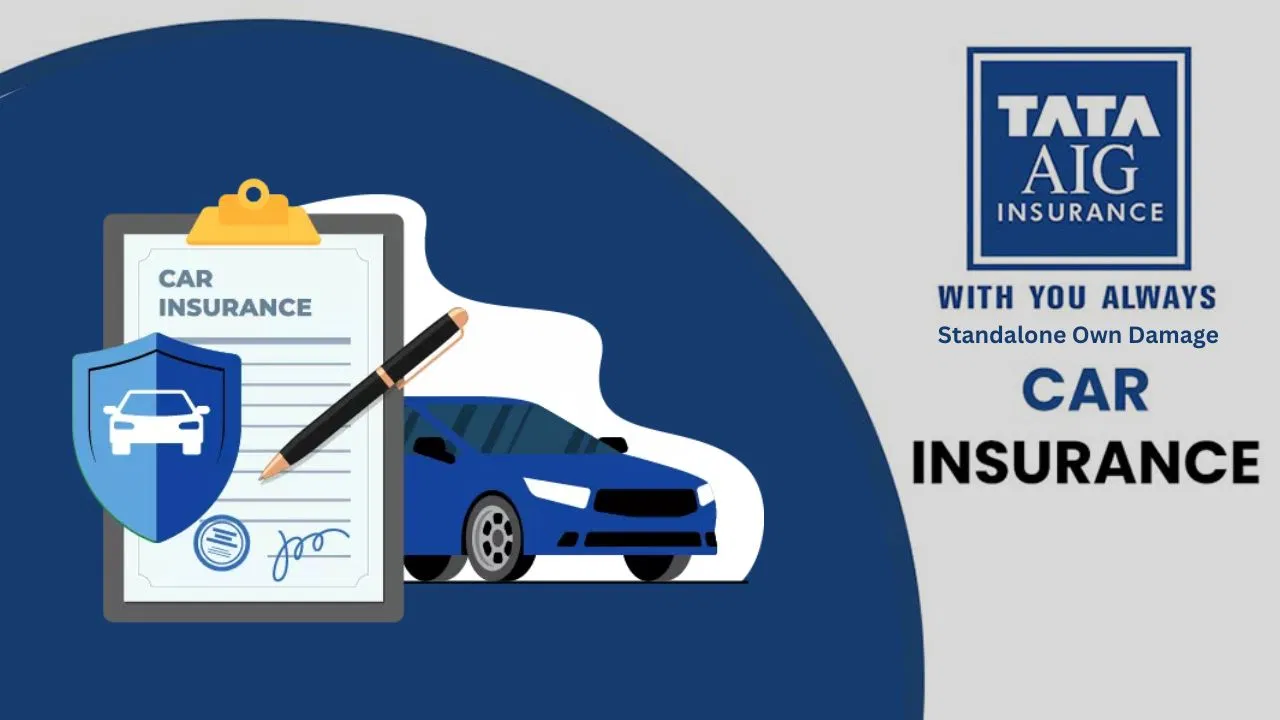A Comprehensive Guide to Commercial Auto Insurance
Commercial auto insurance is essential for businesses that use vehicles as part of their operations. This guide explores the features, benefits, coverage options, and considerations of commercial auto insurance to help you understand its importance and how to choose the right policy for your business needs.

Table of Contents
Sun Life Insurance Claim: A Comprehensive Guide 2024
Sun Life Insurance Claim: A Comprehensive Guide 2024 Navigating the process of filing an insurance c…
Professional Liability Insurance: Best Guide 2024
A Comprehensive Guide to Professional Liability Insurance (Errors & Omissions) Professional liab…
Understanding TATA AIG Insurance: A Comprehensive Guide 2024
Regarding securing the future, nothing stands out quite like insurance. It’s the comforting cushion …
Understanding Ladder Life Insurance 2024: Climbing the Rungs of Financial Security
Ladder Life Insurance: When it comes to securing your financial future and providing for your loved …
Best Guide to Motorcycle Insurance 2024
A Comprehensive Guide to Motorcycle Insurance Motorcycle insurance is essential for protecting rider…
Allstate Car Insurance: Comprehensive Coverage and Benefits 2024
Allstate Car Insurance, one of the largest insurance providers in the United States, offers a range …
What is Commercial Auto Insurance?
Commercial auto insurance provides financial protection for vehicles used in business operations. It covers various types of vehicles, including cars, trucks, vans, and trailers, against physical damage and liability from accidents. This insurance is crucial for businesses of all sizes, from small enterprises with a single delivery van to large fleets of vehicles.

Key Features of Commercial Auto Insurance
- Liability Coverage: Covers bodily injury and property damage to others if your business vehicle is at fault in an accident.
- Physical Damage Coverage: Includes both collision coverage (damage from accidents) and comprehensive coverage (damage from non-collision incidents such as theft, fire, or vandalism).
- Medical Payments Coverage: Pays for medical expenses for the driver and passengers in your business vehicle, regardless of fault.
- Uninsured/Underinsured Motorist Coverage: Protects your business if involved in an accident with a driver who has insufficient or no insurance.
- Hired and Non-Owned Auto Coverage: Covers liability for vehicles you lease, rent, or borrow, and for employees’ personal vehicles used for business purposes.
- Deductibles: The amount your business pays out of pocket before insurance covers the remaining costs.
- Policy Limits: The maximum amount the insurance company will pay for covered losses.
Types of Commercial Auto Insurance Policies
Commercial auto insurance policies can vary based on the type of business, vehicle use, and coverage needs:
- Business Auto Insurance: Provides coverage for vehicles owned, leased, or rented by a business.
- Fleet Insurance: Covers multiple vehicles under a single policy, typically for larger businesses with a fleet of vehicles.
- Commercial Truck Insurance: Specialized coverage for trucks and commercial vehicles used for transportation of goods and services.
- Livery Insurance: Covers vehicles used for transporting people for hire, such as taxis, limousines, and ride-sharing services.
- Specialty Vehicle Insurance: Covers unique vehicles used for specific business purposes, such as food trucks, mobile trailers, or construction vehicles.
Benefits of Commercial Auto Insurance
Commercial auto insurance offers several important benefits for businesses:
- Financial Protection: Covers repair or replacement costs for business vehicles and medical expenses for injuries sustained in an accident.
- Liability Coverage: Protects the business from financial loss if legally responsible for an accident causing injury or property damage to others.
- Peace of Mind: Provides reassurance that business operations involving vehicles are protected against unexpected expenses resulting from accidents or other incidents.
- Compliance with Legal Requirements: Ensures the business meets state-mandated minimum insurance requirements for liability coverage.
Common Perils Covered by Commercial Auto Insurance
Commercial auto insurance typically covers damage caused by:
- Traffic Collisions: Accidents with other vehicles, pedestrians, or objects.
- Theft and Vandalism: Loss or damage resulting from theft or intentional damage to the vehicle.
- Natural Disasters: Damage from events like hail, floods, hurricanes, and earthquakes.
- Fire and Explosions: Damage resulting from fires or explosions.
- Animal Collisions: Damage caused by collisions with animals.

Factors Affecting Commercial Auto Insurance Premiums
Several factors influence the cost of commercial auto insurance premiums:
- Type of Vehicle: The make, model, and age of the vehicle can impact premiums, with newer and more expensive vehicles often costing more to insure.
- Vehicle Use: How the vehicle is used in business operations, including the distance driven and the nature of the cargo or passengers.
- Driver History: The driving records of employees who will be operating the vehicles. A clean driving record typically results in lower premiums, while accidents and violations can increase rates.
- Location: Urban areas with higher traffic density and accident rates may have higher premiums compared to rural areas.
- Coverage Amounts: Higher coverage limits and additional endorsements increase premiums.
- Deductible Amount: Choosing a higher deductible can lower premiums but increases out-of-pocket costs in the event of a claim.
- Business Type: The nature of the business and its associated risks can affect premiums.
How to Choose the Right Commercial Auto Insurance Policy
Selecting the right commercial auto insurance policy involves careful consideration of several factors:
- Assess Your Coverage Needs: Determine the level of coverage needed based on the types of vehicles, how they are used, and the potential risks involved.
- Compare Quotes: Obtain quotes from multiple insurers to compare premiums, coverage options, and policy features.
- Review Policy Exclusions: Understand what is not covered by the policy, such as wear and tear, mechanical breakdowns, or intentional damage.
- Consider Additional Coverages: Evaluate whether additional endorsements or riders are necessary to meet your needs, such as coverage for specialized equipment or cargo.
- Check for Discounts: Look for available discounts, such as those for having safety features in your vehicles, implementing a safe driving program, or bundling policies with the same insurer.

The Claims Process
Filing a commercial auto insurance claim involves several steps:
- Notify the Insurer: Contact the insurance company as soon as possible after an accident or incident.
- Document the Damage: Take photos or videos of the damage and gather information from other parties involved.
- Complete Claim Forms: Fill out the required claim forms provided by the insurer.
- Provide Documentation: Submit necessary documents, such as police reports, repair estimates, and medical bills.
- Insurer Review: The insurance company reviews the claim and may request additional information or send an adjuster to assess the damage.
- Approval or Denial: The insurer approves or denies the claim based on the policy terms and documentation provided.
- Receive Payment: If approved, the insurer issues payment for the covered losses.
Common Exclusions and Limitations
Commercial auto insurance policies often include exclusions and limitations:
- Intentional Damage: Damage caused intentionally by the policyholder or employees is not covered.
- Wear and Tear: Normal wear and tear or mechanical breakdowns are typically not covered.
- Personal Use: Damage occurring when the vehicle is used for personal purposes may be excluded unless specifically covered by the policy.
- Unauthorized Drivers: Accidents involving drivers not authorized or listed on the policy are not covered.
- Certain Cargo: Some policies may exclude coverage for specific types of cargo or materials.
Case Studies
Case Study 1: Delivery Vehicle Accident
ABC Delivery Services, a small business in New York, had one of its delivery vans involved in an accident that resulted in significant damage to both the van and another vehicle. The commercial auto insurance policy covered the cost of repairing the delivery van under collision coverage and the damage to the other vehicle under liability coverage. Without this coverage, the business would have faced substantial out-of-pocket expenses and potential legal liabilities.
Case Study 2: Theft of Construction Equipment
XYZ Construction, a construction company in Florida, experienced the theft of a truck loaded with expensive equipment from a job site. The comprehensive coverage under their commercial auto insurance policy covered the cost of replacing the stolen truck and equipment. The financial protection from the insurance policy allowed the company to continue its operations without significant disruption.
Industry Insights and Statistics
- Rising Premiums: According to the Insurance Information Institute, commercial auto insurance premiums have been increasing due to factors such as rising repair costs, increased litigation, and higher medical expenses.
- Driver Shortages: The American Trucking Associations reports that driver shortages in the trucking industry can impact insurance premiums, as less experienced drivers may present higher risks.
- Telematics: The use of telematics and fleet management systems can help businesses monitor driving behavior and improve safety, potentially leading to lower insurance premiums.
Conclusion
Commercial auto insurance is a crucial safeguard for businesses, providing protection for vehicles, employees, and financial security in the event of an accident or other incidents. By understanding the key features, benefits, types of policies, and factors affecting premiums, you can make an informed decision about the right commercial auto insurance policy for your business needs. Whether for protecting against collision damage, ensuring compliance with legal requirements, or securing peace of mind, commercial auto insurance offers valuable protection for your business operations.
Sources
- Insurance Information Institute – Commercial Auto Insurance
- National Association of Insurance Commissioners (NAIC) – Commercial Auto Insurance
- American Trucking Associations








2 comments
[…] Best Guide to Commercial Auto Insurance 2024 […]
[…] Best Guide to Commercial Auto Insurance 2024 […]